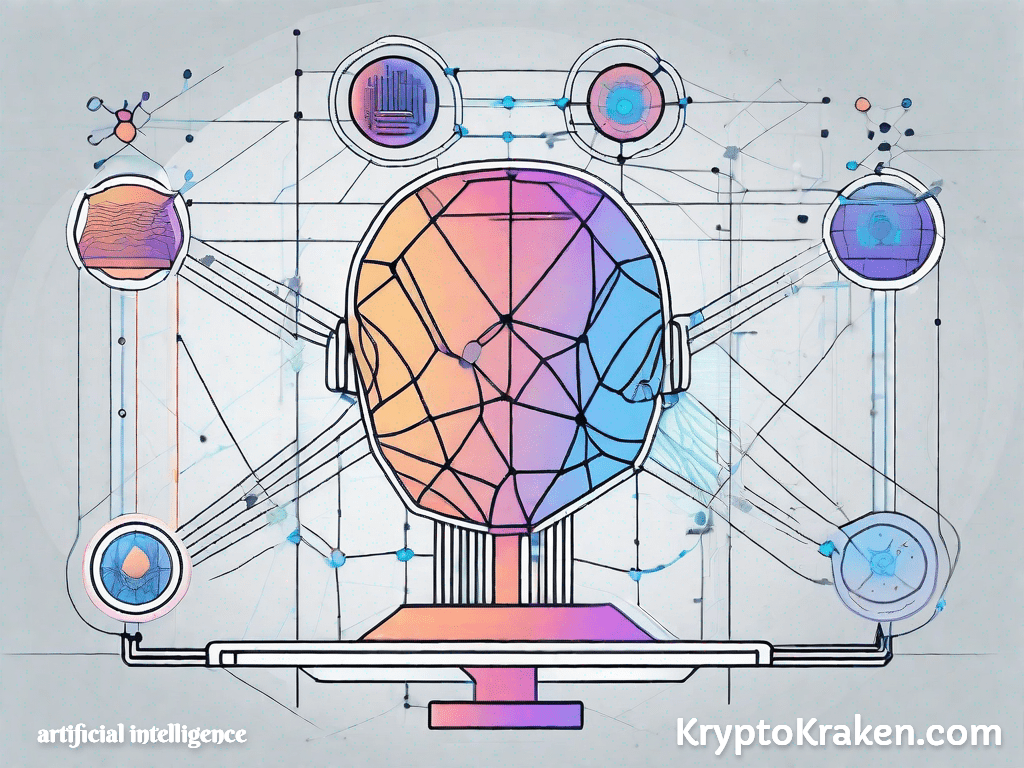
- September 2, 2023
- Dennis Frank
- 3
Understanding cryptocurrency 101 can seem like navigating a labyrinth.
The world of digital assets is complex, filled with jargon and intricate mechanisms that might feel overwhelming to newcomers.
But here’s the truth…
To participate in this rapidly evolving financial landscape, mastering cryptocurrency 101 is crucial.
Cryptocurrencies are no longer just an obscure tech novelty. They’re becoming mainstream financial instruments influencing economies globally.
It’s not essential to quickly become a master of blockchain technology. But having basic knowledge about how cryptocurrencies work will empower you in this digital age.
Table Of Contents:
- Understanding Cryptocurrency 101: A Guide to Digital Assets
- The Mechanism Behind Cryptocurrencies
- Exploring Different Types of Cryptocurrencies
- Navigating Through Volatility in Cryptocurrencies
- The Legal Landscape Surrounding Cryptocurrencies
- Prospects and Challenges Ahead for Cryptocurrency
- FAQs in Relation to Cryptocurrency 101
- Conclusion
Understanding Cryptocurrency 101: A Guide to Digital Assets
Cryptocurrencies are revolutionizing our financial landscape. They operate independently from any central authority, offering a new form of decentralized digital currency.
An anonymous entity, referred to as Satoshi Nakamoto, introduced the concept of cryptocurrencies in 2009 with Bitcoin. Today, there is a vast array of cryptocurrencies available on numerous crypto exchanges.
The Role and Significance of Blockchain Technology
In essence, blockchain technology forms the backbone for most cryptocurrencies. This distributed ledger records transaction data across multiple computers rather than one centralized server – enhancing security and transparency.
Every block within this chain links back to its predecessor through cryptographic hashes – making alterations nearly impossible due to the need for subsequent changes throughout every connected block.
- Distributed Ledger: The use of distributed ledgers ensures that all participants have access to transparent record-keeping tools, hence increasing trust among users.
- Data Immutability: As each confirmed transaction gets recorded onto these blocks, which connect back cryptographically ensuring tampering is virtually impossible, it enhances reliability.
- Potential Benefits Beyond Finance: With such features at hand, many industries beyond finance, like supply chain management and healthcare, are exploring ways they can leverage blockchain’s potential benefits.
Cryptography: A Key Component Of Digital Currencies
A fundamental characteristic distinguishing cryptocurrency from traditional money is cryptography securing transactions while controlling creation units simultaneously.
To understand how this revolutionary tech works will reveal why it has gained considerable attention worldwide akin to the internet’s impact decades ago.
 Cryptography: A Key Component of Digital Currency
Cryptography: A Key Component of Digital Currency
The Mechanism Behind Cryptocurrencies
What powers the world of cryptocurrencies? A system of intricate protocols based on cryptographic principles such as PoW and PoS is what provides the infrastructure for digital currencies. These consensus mechanisms form the backbone of blockchain technology, which underpins most digital currencies.
Understanding Cryptocurrency Mining
Mining is an integral part of understanding how cryptocurrencies work. Miners utilize powerful computers to solve intricate equations that validate each transaction within their respective networks.
- PoW: This mechanism involves miners solving complex mathematical problems to add new blocks into the chain. Bitcoin uses this method extensively. Learn more
- PoS: This system assigns block validation rights based on the quantity or ‘staked’ coins held by participants – Ethereum 2.0 being one such example. Learn more
- Digital Ledger: An immutable record formed once computations are successfully completed, verified across nodes in the network, and added onto the blockchain’s ledger. Learn more
Exploring Different Types of Cryptocurrencies
The cryptocurrency universe is teeming with a myriad of digital currencies, each offering unique features and use cases. From Bitcoin to Ether, Binance Coin to Tether – the variety is as vast as it is intriguing.
Bitcoin stands tall in this crowd not just for being the firstborn but also due to its robust peer-to-peer network that validates transactions through cryptography before etching them on an immutable public ledger called blockchain. Another informative article is Exploring the Different Types of Cryptocurrency. It delves in a little deeper on this subject
Decoding Bitcoin and Ether: Commodities or Currencies?
The CFTC considers both Bitcoin and Ether as commodities, creating regulatory clarity but also raising questions about other cryptocurrencies. This classification lends some regulatory clarity while simultaneously raising questions about how other cryptocurrencies should be treated under the law.
Ethereum has carved out its own niche thanks to smart contracts—self-executing agreements coded directly into the blockchain—which have given birth to decentralized applications (dApps) enabling novel financial products like DeFi or Decentralized Finance without traditional intermediaries such as banks or brokers.
Beyond these two giants lie numerous other noteworthy players including Binance Coin, powering one of the world’s largest crypto exchanges; Tether, providing stability amidst volatile crypto markets with a 1:1 pegging against the US dollar; Ripple’s XRP, designed for real-time global payments among others.
Navigating Through Volatility in Cryptocurrencies
The volatility of cryptocurrencies can be a daunting challenge for investors. Despite the difficulty posed by crypto volatility, it is essential to comprehend the major elements that drive these sudden price shifts and find out how to effectively cope with them.
Let’s explore some insights into managing these rapid price swings.
1. Understanding Regulatory Impact on Crypto Prices
Cryptocurrency markets are highly sensitive to regulatory news from governments worldwide. For instance, when China announced its crackdown on cryptocurrency mining last year, Bitcoin’s value dropped significantly within days. #
To stay ahead of such market fluctuations caused by policy changes or legal developments related to digital currencies like crypto 101 regulations or fiat currencies vs cryptocurrencies discussions, staying informed about global crypto-related legislative trends becomes imperative.
2. Identifying Market Manipulation Tactics
Beyond regulation, certain manipulative practices also fuel market instability in the world of decentralized finance (DeFi). One common example is “Pump-and-dump”, where large players inflate prices only to sell off their holdings at peak levels, causing dramatic crashes – leading beginner enthusiasts towards potential forever lost scams if not cautious enough.
- Educate yourself about different types of manipulation tactics prevalent in the marketplace.
- Avoid investing based solely on hype around specific coins.
- Diversify your portfolio across various digital assets, including major ones with high market capitalization as well as emerging altcoins.
4. Tech Updates Influencing Digital Currency Valuation
Innovation and upgrades within blockchain technology itself play a significant role too – impacting investor confidence and thereby affecting coin values considerably. For example, Ethereum’s transition from proof-of-work consensus algorithm towards a more energy-efficient proof-of-stake led to considerable uncertainty among investors, which reflected upon its valuation trend. #
Risk Management Amidst Turbulence: A Key To Successful Investing In The Crypto World
An effective risk

The Legal Landscape Surrounding Cryptocurrencies
As the world of digital assets evolves, so does its legal framework. Globally, we see a spectrum of responses to cryptocurrencies; some nations have adopted them as part of their financial systems while others have rejected these decentralized technologies entirely.
Understanding Taxation on Cryptocurrencies
Tax implications for cryptocurrency transactions are another area that sees varied approaches across jurisdictions. In general terms, most tax authorities treat digital currencies akin to property rather than traditional fiat currencies when it comes to taxation rules.
- In countries like the United States where cryptocurrencies aren’t issued by any central authority but mined using complex algorithms, they’re considered taxable properties under federal law. This means individuals engaging in buying or selling activities must report gains or losses during their annual income tax filing process.
- Determining cost basis and tracking price fluctuations across different crypto exchanges often complicates this task significantly.
- To navigate through this intricate landscape effectively without falling foul with your local IRS office, “seek professional advice from an accountant experienced in cryptocurrency taxation”.
Prospects and Challenges Ahead for Cryptocurrency
The landscape of cryptocurrency is ever-evolving, with a future that sparks both intrigue and caution. The adoption of cryptocurrency as a payment processor is on the rise, indicating potential opportunities for businesses. Businesses from different sectors are beginning to accept cryptocurrencies like Bitcoin or Ether.
Furthermore, cryptocurrencies have found growing applications within decentralized finance (DeFi). DeFi platforms built on blockchain technology enable financial transactions without intermediaries such as banks.
Trendsetters Influencing Crypto Adoption
Influential figures play pivotal roles in shaping this industry’s trajectory. Take Changpeng Zhao, for instance – his leadership at Binance has significantly increased crypto-asset availability worldwide.
Jed McCaleb also offers substantial contributions by creating avenues for everyday commerce integration through innovative products like crypto top-up debit cards.
Risks Looming Over Digital Wallets
Cryptocurrencies aren’t devoid of risks; security concerns related to storing these assets in digital wallets remain paramount. Instances where vast sums were lost forever due to scams or forgotten passwords highlight this issue vividly.
To combat these challenges, users should resort to reputable wallet providers offering robust security measures while keeping backups of private keys offline, along with implementing two-factor authentication whenever possible. For an overview of decentralized wallets, see: What is a DeFi Wallet? An Overview of Decentralized Finance Wallets
FAQs in Relation to Cryptocurrency 101
How do you explain cryptocurrency to a beginner?
Cryptocurrency is digital or virtual money that uses cryptography for security. It does notoperate through a central bank, and transactions are recorded on a blockchain technology.
What are the basics of cryptocurrency?
The fundamentals of cryptocurrency involve understanding its decentralized nature, how it’s created through mining, its storage in digital wallets, and the role of blockchain in recording transactions.
What are the 4 types of cryptocurrency?
The four main types include Bitcoin (Symbol is BTC), Ethereum is (ETH), Ripple, (XRP), and Tether is (USDT). Each has unique features, but all serve as mediums for peer-to-peer transactions.
Which cryptocurrency is best for beginners?
Bitcoin is often recommended for beginners due to its widespread acceptance, market dominance, and relatively stable price compared to other cryptocurrencies.
Conclusion
Demystifying the world of digital assets begins with understanding cryptocurrency 101.
You’ve explored the fascinating realm of decentralized currencies and their underlying blockchain technology.
We’ve investigated the operations of these digital assets, from their proof-of-work to stake consensus models that keep the blockchains running.
Mining, a crucial process in forming new units of cryptocurrencies, is no longer an alien concept for you.
Bitcoin or Ether as commodities? You now understand why they’re viewed as such by regulatory bodies like CFTC.
The volatile nature of crypto markets might have seemed daunting at first but now you know what drives those dramatic price swings.
Navigating through legal landscapes surrounding cryptocurrencies across different jurisdictions globally doesn’t seem so challenging anymore either.
Taxation on cryptocurrencies? Check! We clarified common misconceptions about tax liabilities arising from crypto transactions too.
You also learned about potential future trends for cryptocurrency including increased adoption as a payment processor and growing use cases in decentralized finance (DeFi).
We highlighted key players who are shaping the industry while discussing risks associated with storing your digital wealth in wallets along with some safety tips!
If this has sparked your interest further and you want to delve














































































































3 comments on “Understanding Cryptocurrency 101: A Guide to Digital Assets”